The Meaning of Life
I believed if I thought about it hard enough, I would figure it out. (Hubris, that!) I knew the answer was out there somewhere.
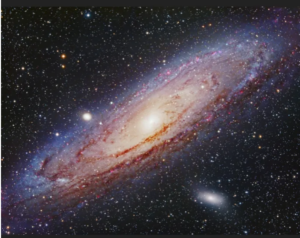
Adults did not seem particularly concerned about the meaning of life. How crazy was that? What could be more important? But one idea scared me more than realizing that everyone wasn’t going around absorbed by this great mystery—the fear that when I grew up, I would be like them. In my diary, I wrote my adult self a stern message, admonishing her/me against settling for complaisant acceptance.
I read a lot in this quest. Alan Watts was a great inspiration and guide, giving me difficult concepts to chew on, such as the mind being like an onion—you peel layer after layer, thinking you are getting to the core, only to find there is no core, only more layers until there is . . . nothing.
I hated that. There had to be a core, a “me.” And there had to be a meaning, despite Watt’s cryptic conclusion, “This is it.”
Many people follow an ideology that journalist Derek Thompson calls “workism,” a belief that work provides one’s sense of identity and purpose. As a former police person, I get it. You put on more than clothes with a uniform; you put on an identify. Retiring, many are unable to find a center to hold onto when that layer peels off. What happens when children go off to live their own life? When a parent dies? A spouse?
Who am I, if I am not a [cop, nurse, entrepreneur, doctor, builder, artist, spouse, parent, friend, etc.]?
I thought I had escaped that trap in my retirement because even during my law enforcement career and the one that followed, I knew my real and true self was not that work (although I did it wholeheartedly).
You see, I was a writer. All this other stuff was what I did, but not who I was.
And then I retired. I still wrote, but I wasn’t as consumed with it as I had been. How could that be if that was my true self and life’s purpose?
I was free now to pursue my art on my own terms. But strangely, other things started to take my attention, things I found I loved too. This surprised me. It challenged my perception of myself.
Who was I now? I was still determined to find out, because the answer to that question seemed entwined with the meaning of life. We need to be who we truly are. Right?
I did a lot of things. I redefined myself as an artist, a martial artist, a teacher, a very humble gardener.
But I knew I was none of these things . . . or I was all of them.
Elusive, this meaning-of-life thing. Is it an onion, after all? Are the peels just what we do?
What if I die without finding it?
What if I get old and stop doing?
In my mind, I jump ahead:
I am old. I am still. I look out on my garden and the stack of books I have written, the paintings I have painted. Remember the children I have taught. My friends are gone. Family gone, except for the young who are living their own lives.
Old. Forgotten. Maybe I am in a place where they put old people who stop doing. Now what? Who am I? Are only memories left? Is that why old people are still?
What was my life about? Did it mean anything? Am I worthy of it if I just sit here?
Wait.
Is it possible that there is no one-size-fits-all? That the meaning of life is not the things we do, not the breakthrough understanding, not something we find at all, but something we . . .
create?
Well then.
Maybe I will create a meaning right here in this moment, a meaning to breathing in and breathing out. A meaning to smiling at the cranky woman on a walker who hogs the hallway every morning. A meaning to inhaling the turned earth of the rose bed outside my window or the taste of fresh-from-the-oven bread. Maybe just remembering. What is writing at all but remembering? In the moment we pen, the moment we write about has already passed.
So maybe I will scratch out a few words with my arthritic, age-splotched hands, words on a napkin bound for the trash bin. Or maybe words that might touch another someday, a fellow human seeker looking for who they are and . . .
the meaning of life.
T.K. writes about what moves her, following a flight path of curiosity, reflection, and imagination. Read more about her at TKThorne.com.

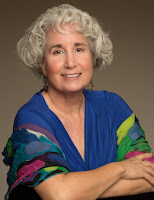
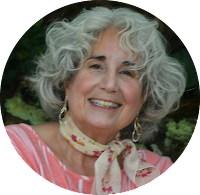
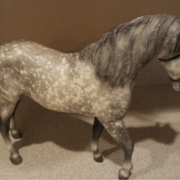
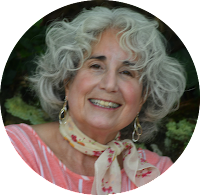






You aren’t already an old crotchety woman? Okay, let’s set that aside. Your post hits home reflecting on a question all of us have, especially as we age. Ironically, days that seemed so long when we were children, whiz by now, making your observations all the more poignant.
LOL, you pegged me, Debra. Already there! Or at least getting closer every moment.
I loved your post because I’ve pondered the meaning of life forever, and the older I get the more I ponder it. If you figure it out, please let us all know!
Dang, Kathryn, thought I did! [laughing icon]
T.K., your post was both depressing and uplifting at the same time. Like life!
You are so right, Lois. It certainly is like that, both alternating and sometimes simultaneous. What a ride!
TK, I don’t think there’s a human being alive who doesn’t ask your question in one form or another. Do you remember the song, “Is that all there is?” by Peggy Lee. Every time I heard that song, I suppose like Lois, I was both depressed, then uplifted. Because of the stanza, “If that’s all there is, my friend, then let’s keep dancing. Beautiful post as usual.
Lovely topic, and your philosophical waxings resonate with me, too.
Now you have me thinking, T.K. I know I’ve meant different things to different people at different times in my life, and define myself by my actions, good or regrettable though they may be. To sum it up in just one word seems impossible, except to say that I am a human being, with potential for the complexity that the term encompasses.
I enjoyed this post! I once had a conversation about the meaning of life with a friend who was in her early 90s. I said, “I wonder if I will die young because I can’t picture myself old.” She smiled and said “me too.”